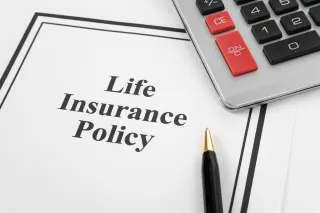Securing Your Future, Protecting Your Peace of Mind
Brad Kingsberg
Insurance Agency
Dedicated to securing your family’s future with compassionate, reliable, and personalized insurance solutions.
Committed to Helping Our Clients Succeed
Lorem ipsum dolor sit amet, consectetur adipiscing elit. In convallis turpis efficitur enim efficitur pulvinar. Nunc erat nibh, tempor quis volutpat eu, consectetur at ante. Curabitur venenatis orci sed auctor sollicitudin. Curabitur feugiat justo mauris, eget finibus tortor congue non. Donec feugiat mattis nisl et semper. Nulla rutrum est ac iaculis bibendum.

Kim Wexler

Lorem ipsum dolor sit amet, consectetur adipiscing elit. Quisque nisi nunc, tincidunt non nibh non, ullamcorper facilisis lectus. Sed accumsan metus viverra turpis faucibus, id elementum tellus.

Billy Jackson

Lorem ipsum dolor sit amet, consectetur adipiscing elit. Quisque nisi nunc, tincidunt non nibh non, ullamcorper facilisis lectus. Sed accumsan metus viverra turpis faucibus, id elementum tellus.
What kind of Life Insurance should I buy?
The choice depends on your needs and financial situation. Typically younger people with a lot of earning years ahead of them will buy TERM insurance because it is less expensive and they can buy a larger amount.
More mature individuals should buy PERMANENT insurance, because they don’t need to consider their child’s college needs and income replacement is no longer as much of a factor. A smaller permanent policy that never expires is more appropriate.

What are different kinds of life insurance?
Term Life Insurance
Term life insurance provides coverage for a specified term (e.g., 10, 20, or 30 years). If the insured dies during this period, the death benefit is paid to the beneficiaries. It is more affordable and will be a lower premium than permanent life insurance but does not accumulate cash value.
Term insurance is most often designed to replace the income of a breadwinner, pay off a mortgage and/or provide for a child’s education. The downside of term insurance is that it can get very expensive as you get older and the premiums will continue to increase.
Permanent Life Insurance
Coverage that does not expire, this is the type of policy is appropriate if you want lifelong coverage, an investment component, or to leave a legacy. Permanent coverage will require more funding than term insurance because it is designed to never expire, unlike term insurance.
Final Expense Life Insurance
Final expense life insurance, also known as burial insurance or funeral insurance, is a type of whole life insurance designed to cover expenses related to a person's death, such as funeral costs, burial or cremation expenses, medical bills, and other end-of-life expenses. It is usually issued as a simplified whole life policy and typically does not require an exam. Often purchased in smaller amounts such as $5,000 to $20,000, but can be as high as $40,000 for some companies.

Do I have to take an exam to qualify for Life Insurance?
This will depend on your age and health. Typically up to age 60 is available without an exam, but you must also be healthy enough to qualify for a policy that does not require an exam.

What are Living Benefits?
Living benefits allow the policyholder to receive a portion of the death benefit early, while still alive, if diagnosed with a terminal illness, a critical illness or a chronic illness. This can help cover medical expenses and other costs during the insured's remaining lifetime.
These extra benefits are typically included at no extra cost in their policy. The benefits are available under certain conditions, as follows.
Terminal Illness Benefit
The Terminal illness living benefit becomes available should the insured be diagnosed by their doctor as terminally ill. At this point, the insured may take a significant portion of the death benefit early (amount varies by policy and carrier), while still living. The death benefit is reduced by the amount they take and the remaining death benefit will be paid out to their beneficiary(s) at time of death.
Critical Illness Benefit
The Critical Illness living benefit provides early access to a significant portion of the death benefit (amount varies by policy and carrier) if the policyholder should suffer a major illness, such as heart attack, stroke, cancer, renal failure or major organ transplant. The death benefit is reduced by the amount they take early and the remaining death benefit will be paid out for their beneficiary(s) at time of death.
Chronic Illness Benefit
Through a Chronic illness living benefit provides early access to a significant portion of the death benefit (varies by policy and carrier) if the policyholder is diagnosed with a chronic illness where they are unable to do any two of the six Activities of Daily Living (ADLs).
The ADLs include activities such as bathing, feeding themselves, dressing, toileting/continence, grooming and mobility. It does not have to be from any specific illness, as long as they can no longer do at least any two of the six ADLs. The death benefit is reduced by the amount they take early and the remaining death benefit will be paid out for their beneficiary(s) at time of death.

What is a Term Conversion option?
Most term policies have what is called a term conversion option in their life insurance policy. This is a clause in their term policy that allows them to convert either all or a portion of their term policy’s death benefit to a permanent policy (usually Universal Life). It should be noted here that no additional underwriting is required, so even if their health is considered uninsurable, the option to convert to a permanent policy is available to them, even at the same good health rating as the original term policy.
This is an important option because people's health changes over time and it is important to know that they have a way to continue coverage, even as their health is in decline. Most all term policies that we offer include a term conversion option for a specified number of years, to convert a term policy to permanent coverage.

Is a Life Insurance death benefit taxable?
No. Life insurance proceeds are never taxable and the death benefit also bypasses the probate process. The money is typically available immediately to the beneficiaries, within 30 days, once a claim has been filed

Can my minor children be my beneficiaries?
Yes, you can name minor children as beneficiaries. However, life insurance companies typically require that proceeds be managed by a guardian or trustee until the children reach the age of majority. Setting up a trust can help ensure the funds are managed according to your wishes.


1 (760) 477-4753
3410 W MacArthur Blvd. Suite K,
Santa Ana, California 92704
NIPR # 1323540
CA RESIDENT # 0624462



